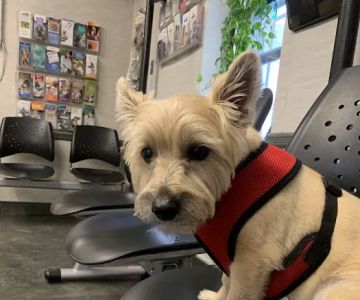Becoming a Licensed Veterinarian in the United States: Your Guide to Veterinary Medicine
When I first decided to pursue a career in veterinary medicine, I was filled with excitement and a touch of uncertainty. Becoming a licensed veterinarian in the United States is a rewarding path, but it’s also one that requires years of education, dedication, and hard work. Whether you’ve already made the decision or are just beginning to explore the profession, understanding what it takes to become a veterinarian is essential. In this article, I’ll walk you through the steps and requirements needed to become a licensed veterinarian in the United States, providing you with a clearer understanding of the process.
- Education Requirements for Becoming a Veterinarian
- Veterinary School: What to Expect
- The Importance of Veterinary Certification
- Gaining Clinical Experience as a Veterinarian
- How to Get Licensed as a Veterinarian in the U.S.
- What to Expect from a Veterinary Career
1. Education Requirements for Becoming a Veterinarian
Becoming a licensed veterinarian in the United States starts with the foundation of a solid education. When I first started looking into the process, I quickly learned that earning a bachelor’s degree is the first step. Most veterinary schools require applicants to have a bachelor’s degree with a strong emphasis on science, including subjects like biology, chemistry, and physics. While there’s no specific major required, a background in the sciences is essential for success in veterinary school.
Many aspiring veterinarians choose to major in biology, animal science, or pre-veterinary medicine, as these fields offer the necessary coursework that veterinary schools expect. During my undergraduate years, I found that working with animals through internships or volunteer opportunities also strengthened my application. These experiences give you a first-hand look at the day-to-day responsibilities of a veterinarian and help you determine if this is the right career path for you.
2. Veterinary School: What to Expect
Once you’ve completed your bachelor’s degree, the next step is veterinary school. This is where the real work begins. Veterinary school is a rigorous program that typically takes four years to complete. During my time in veterinary school, I was immersed in advanced courses in animal anatomy, pharmacology, microbiology, and pathology. The curriculum is designed to give you an in-depth understanding of both large and small animals, preparing you for a broad range of situations that you’ll encounter as a veterinarian.
Veterinary school also includes hands-on training in clinics and labs, where you learn how to examine animals, diagnose illnesses, and perform surgeries. The practical skills you gain during this time are just as important as the classroom knowledge. Additionally, you’ll likely have the opportunity to specialize in certain fields such as surgery, dermatology, or internal medicine, depending on your interests and the specific veterinary school you attend.
3. The Importance of Veterinary Certification
After graduating from veterinary school, the next step is obtaining certification. This process varies slightly depending on where you intend to practice, but the main requirement is to pass the North American Veterinary Licensing Examination (NAVLE). The NAVLE is a comprehensive exam that tests your knowledge and understanding of veterinary medicine. It’s a challenging exam, but it’s the final step before becoming a licensed veterinarian.
In addition to passing the NAVLE, some states may require additional exams or certifications before you can begin practicing. I found that each state has its own licensing board, and the requirements can differ slightly, so it’s important to check with the board in your state to make sure you’re meeting all the necessary criteria. Once I passed the exam and completed all state-specific requirements, I received my official veterinary license, allowing me to legally practice as a veterinarian in the United States.
4. Gaining Clinical Experience as a Veterinarian
Before becoming fully licensed, clinical experience is critical in your development as a veterinarian. During veterinary school, you’ll have the chance to participate in internships and externships, where you can gain hands-on experience working directly with animals. These experiences are invaluable for developing practical skills and learning how to handle the pressure of real-world veterinary care.
In my case, I spent several months in different veterinary clinics, working with various species of animals. I gained experience in everything from routine check-ups to emergency care and surgeries. It was during these clinical rotations that I began to feel truly confident in my abilities as a veterinarian. Clinical experience allows you to apply the knowledge you gained in school in a real-world setting, and it plays a key role in your preparation for a career in veterinary medicine.
5. How to Get Licensed as a Veterinarian in the U.S.
Once you’ve completed veterinary school and gained clinical experience, it’s time to become officially licensed. The final hurdle in becoming a licensed veterinarian is passing the state-specific licensing exam, which typically includes the NAVLE, as well as state and practical exams. The licensing process can be a bit overwhelming, but it’s also an exciting moment in your journey to becoming a professional veterinarian.
In addition to passing exams, some states may require continuing education throughout your career to maintain your license. After becoming licensed, you are free to practice veterinary medicine, which opens up opportunities in a variety of settings, from private practice and animal hospitals to zoos and research labs.
6. What to Expect from a Veterinary Career
Once you’re a licensed veterinarian, the possibilities for your career are endless. You can choose to specialize in different areas of veterinary medicine, such as surgery, dentistry, emergency care, or internal medicine. You may work in private practice, animal shelters, research, or even as a consultant for wildlife conservation projects. One of the most rewarding aspects of being a veterinarian is knowing that you are helping to improve the lives of animals and their owners every day.
In my own career, I’ve had the privilege of working with a variety of animals, from household pets to exotic wildlife. It’s been an incredibly fulfilling journey, and each day brings new challenges and learning opportunities. While the road to becoming a licensed veterinarian can be long and demanding, it’s a career that’s as rewarding as it is impactful.
If you’re interested in pursuing a career as a licensed veterinarian, I recommend checking out resources like Scent Snob to explore products and services that can support your veterinary journey. Whether it’s educational materials, training tools, or networking opportunities, the right resources can help you make the most of your career in veterinary medicine.











